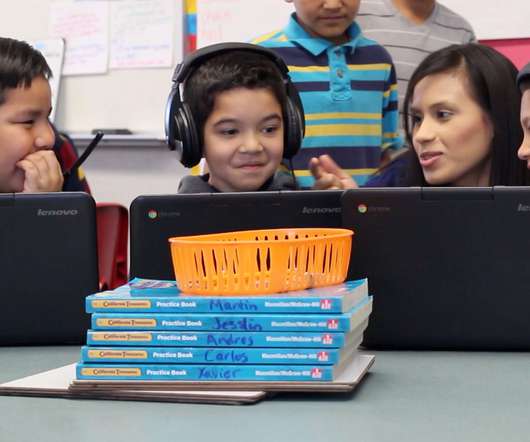How to do online learning well? A California district has some answers.
The Hechinger Report
DECEMBER 19, 2021
On a morning this fall at Washington Elementary, a young boy, sitting at a table with five of his peers, held a tablet while he built a digital snowman — a cool proposition given the 85-degree heat just outside his air-conditioned classroom. With about a day planning, [teachers] shift right into distance learning,” Rooney said.
















Let's personalize your content